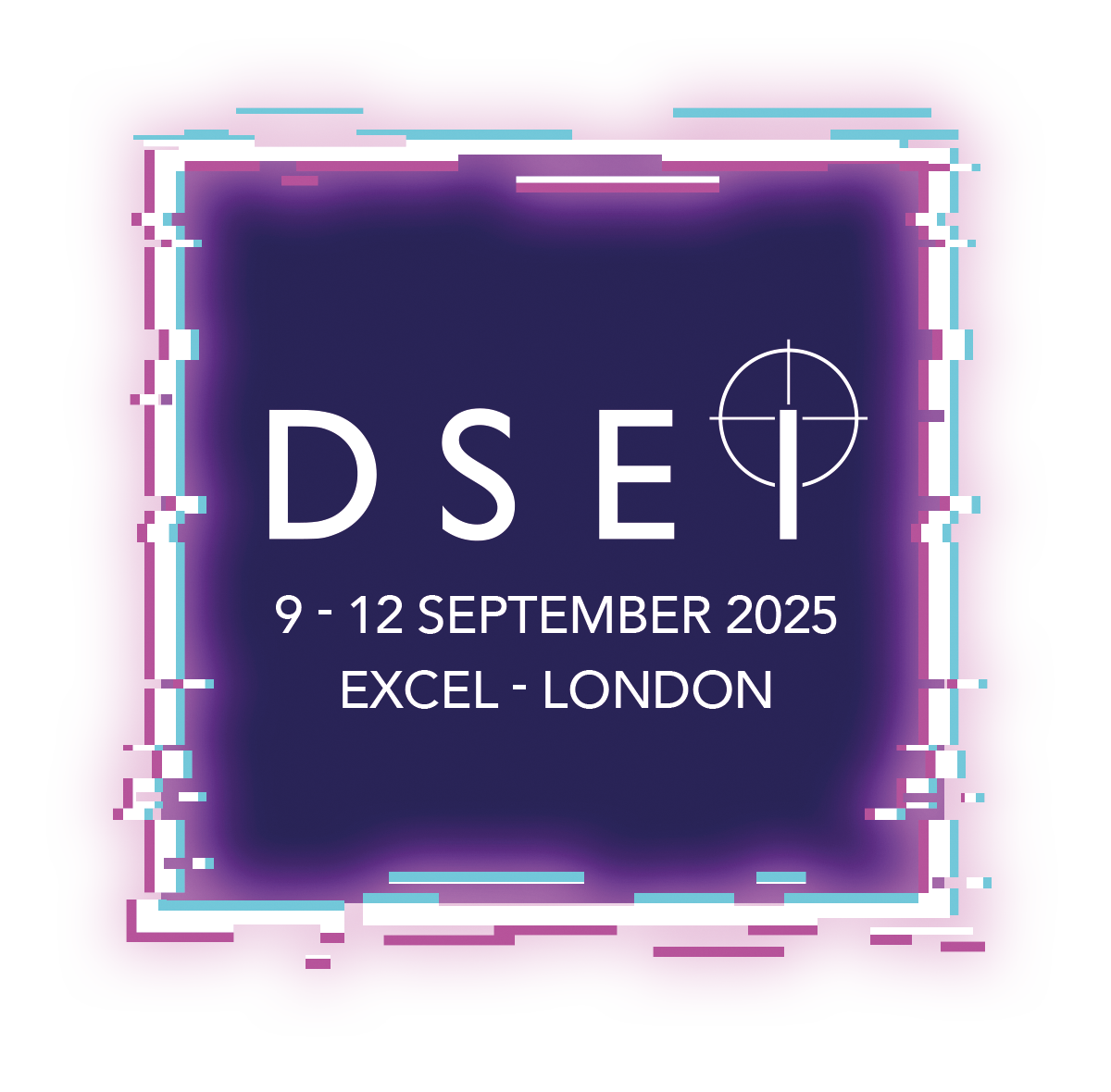International Congress on Soldiers' Physical Performance (ICSPP)
WELCOME
On behalf of the Organising Committee, we are delighted to invite you to participate in the Sixth International Congress on Soldiers’ Physical Performance (ICSPP) to be held in London, UK on 12 - 14 September 2023. This year’s theme, Future Soldier: Delivering Human Advantage, will bring together medical, military and scientific experts to exchange ideas, present new data and collectively enable our soldiers to deliver human advantage within the future land warfare domain.

6th ICSPP JOINING INSTRUCTIONS
6TH ICSPP Future Soldier: Delivering Human Advantage
12TH - 14TH SEPTEMBER 2023, LONDON, UK
Thank you for registering for the 6th International Congress on Soldiers’ Physical Performance to be held in London, UK from 12th to 14th September 2023.
IMPORTANT INFORMATION – Before Arrival
2. Bring photographic ID with you as you will be asked to show it as part of security checks.
3. Plan your journey to London ExCel East Entrance, Prince Regent Station, and time your arrival for 07:45. London will be busy.
4. East Entrance doors open by 08:00 latest. Follow the signs to ICSPP (3rd floor). There will be staff to direct you. On the opening day, please allow 45 min to enter, pass through badge check, reach the ICSPP floorplate, pick up refreshments, and take your seat in the Main Hall.
5. Please ensure you take your seat in the Main Hall by 08:45 for a prompt start at 08:50. You are welcome to take refreshments in with you. Doors close at 08:55 until after the Chief of the General Staff has finished his keynote speech at 09:45. There will be no admittance during the speech.
6. Please submit the Catering & Gala Dinner form here (takes a few seconds) by Monday 4th September or as soon as possible.
Travel to ExCeL VIP East Entrance
Fastest access is via the London Underground (tube) network: take the Docklands Light Railway (DLR) towards Beckton or Gallions Reach. Alight at Prince Regent
station. Follow the signs for ExCel. The ExCel East Entrance is accessed directly from Prince Regent Station on the DLR Line.
If you are using the Elizabeth Line, change at Custom House (or Canary Wharf) onto the DLR. Do not alight at Custom House – this is for the West Entrance (for DSEI).
Join the Elizabeth Line / DLR as soon as possible – other tube lines are very slow.
Travel around London, particularly in the mornings, can often take longer than expected so please leave extra time for your journey. The average journey times from some mainline stations can be found below. The Transport for London (TFL) app can be downloaded on to most smartphones, and provides a London Underground map, up-to-date routes, live journey times and information on any delays/line closures for the London Underground.
• From Stratford International: Take the Jubilee Line from Stratford to Canning Town, then change to take the DLR (Becton-bound) to Prince Regent (19 minutes).
• From London Liverpool Street: Take the Elizabeth Line to Custom House, then change to take the DLR (Becton-bound) to Prince Regent (25 minutes).
• From London Paddington: Take the Elizabeth Line to Custom House, then change to take the DLR (Becton-bound) to Prince Regent (37 minutes).
• From London Waterloo: Take the Jubilee Line to Canning Town, then change to take the DLR (Becton-bound) to Prince Regent (27 minutes).
• From Bond Street: Take the Elizabeth Line to Custom House, then change to take the DLR (Becton-bound) for Prince Regent (33 mins).
• From Canning Town: Take the DLR (Becton-bound) directly to Prince Regent (11 minutes).
Air Travel
a. London Heathrow: Take the Elizabeth Line to Custom House tube station and change to take the DLR (Becton-bound) to Prince Regent for the ExCeL.
b. London City Airport: Take the DLR to Canning Town, then change (if needed) to take the DLR (Becton-bound) to Prince Regent. Alternatively, this journey should take no longer than 10 minutes in a taxi.
c. London Gatwick: Take the Thameslink to London Bridge Station, then change here for London Bridge Underground Station. Take the Jubilee Line to Canning Town, then change to take the DLR (Becton-bound) to Prince Regent.
Arrival at the ExCeL
Access to ICSPP is via the ExCel VIP East Entrance (Prince Regent Tube Station on the DLR Line). Do not attempt to access ICSPP from Custom House Tube Station; this is the main entrance to DSEI, which will be very busy, badge checks will be slow, and it is a 15-minute walk across ExCel to the ICSPP floorplate on the East
side. If you accidentally get off at Custom House, rejoin the DLR (Becton-bound) to Prince Regent Station (one stop). This is likely to be quicker than queuing for entry at the West Entrance for DSEI.
Security will be present at the main entrance to ExCel and on entry to the ICSPP floorplate. Entry will be strictly limited to badge holders (printed before arrival).
Timings for Arrival
Please arrive at ExCel in plenty of time to be seated before the first session begins. Refreshments will be available on arrival. ExCel East Entrance doors will be open by 08:00 latest. Enter the concourse and follow the signs to ICSPP (3rd floor). There will be staff to direct you. On the opening day, please allow 45 min to enter, pass through badge check, reach the ICSPP floorplate, pick up refreshments, and take your seat in the Main Hall.
Please ensure you take your seat in the Main Hall by 08:45 for a prompt start at 08:50. You are welcome to take refreshments in with you. Doors close at 08:55 until 09:45. There will be no admittance during the welcome address by Brigadier Finn (09:00) and the opening keynote by Chief of the General Staff, General Sir Patrick Sanders, that follows immediately afterwards (09:15 – 09:45).
Access to ICSPP
Print your badge and bring it with you. Badges are being sent by email from dsei@dynamail.co.uk. Please check your junk folder. The email contains instructions for folding and displaying your badge (you will receive a holder on arrival). Electronic copies of passes are not accepted. Please bring photographic ID with you as you will be asked to show it as part of security checks.
There is strictly no admittance without the correct badge. If you do not have a printed badge, contact a member of the ICSPP event team immediately; we will be able to help but your entry will be significantly delayed. Members of the ICSPP event team will be available at the East Entrance at the start of the day to assist with any issues, or email ArmyPers-ICSPP2023@mod.gov.uk for assistance.
If you have not received your printable pass in the next few days, please contact the ICSPP event organising team (ArmyPers-ICSPP2023@mod.gov.uk).
The ICSPP floorplate is signposted from the East Entrance of ExCel. The ICC Capital Suite can be accessed by escalators and by lifts. Please be aware that DSEI is very busy with many break-out events so please follow the signposts for ICSPP.
Cloakroom facilities are available.
Catering
drinks will be served at the Gala Dinner on Thursday 14 September. Please submit the Catering & Gala Dinner form here (takes a few seconds) by Monday 4th September or as soon as possible. The ExCeL has many catering outlets open during DSEI if additional or alternative snacks and drinks are required.
Gala Dinner
Visiting London
Public Transport. Public transport in London is the quickest and cheapest way to travel. To save on tickets, a visitor Oyster card can be purchased in advance of your stay to collect on arrival. The visitor Oyster card can be tapped on entry and exit at any London bus, train, tube, or boat service run by Transport for London. The Oyster card will allow you to travel as much as you wish in a day while capping the daily spend. This is often cheaper than buying separate tickets. Contactless bank cards can be used in the same way.
Using the Tube. The London Underground is an extensive network of public transport allowing quick and easy travel across the city. The ExCeL is on the Elizabeth Line (purple on the tube map) and the (Becton-bound) Docklands Light Railway (DLR) (double green line on the tube map). For those who are unfamiliar
with the tube network the TfL London Underground Tube Map app is available on most smartphones and includes a journey planning feature.
Taxis. Traditional London black taxis (cabs) can be flagged down from the side of the road, without booking. These work on a metered system that should be clearly visible from the back passenger seats. All London taxi drivers are required to have a license, council registration and ID available for all passengers to view. Most London black taxi drivers accept major credit/debit cards. Lift sharing apps, such as Uber, are also available for use in London.
Hotels. London has a wide variety of hotels to suit all budget types. Due to ICSPP sharing the ExCeL with the DSEI exhibition, it is likely that hotels close by will have limited availability for the conference week. We are unable to provide discounted accommodation for ICSPP attendees. However, hotels in the areas of Canary Wharf, Liverpool Street, London City Airport and the areas surrounding Bond Street should have increased availability for the conference week and are a short tube journey from the ExCeL. Please note, that although London is a relatively safe city to visit, some areas on the outskirts are undesirable to stay and are not recommended, particularly for lone female travellers. Before you book hotels, please check reviews and research the area you wish to stay in. If in doubt, please contact the ICSPP Social Chair (ArmyPers-ICSPP2023@mod.gov.uk) who is happy to provide recommendations on places to stay.
Food and Drink. Food and drink options in the city are vast and range from quick takeaway style food, to fun, novelty themed bars and restaurants. Please make sure restaurants are booked in advance, particularly for large groups, as availability can be limited during the week of DSEI.
Information for Presenters.
Oral/Thematics. Please email your presentations to ArmyPers-ICSPP2023@mod.gov.uk by 5th September. Delays will impact timings of your session and it may not be possible to upload your presentation on the day from your personal device.
If you have not received instructions and timings for thematic, oral or poster presentations, please contact the Scientific Committee at ArmyPers-ICSPP2023@mod.gov.uk
Scientific Programme. An electronic book of abstracts and the conference programme will be sent out shortly and will be made available to download from the ICSPP website. In the interest of conserving the environment, printed copies of these documents will not be provided, but you are free to print your own copy before arrival. QR codes will be issued at the start of each session for ease of access to these documents.
DSEI. Delegates have the opportunity to visit the DSEI Exhibition on the afternoon of Wednesday 13th September, after lunch. You will need to show your badge for re-entry to ICSPP, which will resume at the ICC Capital Suite from 16:00. We do encourage delegates to take this opportunity to explore DSEI, which is the largest Defence and Security Exhibition in the world. Exhibits, lectures, panels, and demonstrations cover all military domains and many areas of interest to ICSPP delegates from medical and health innovations to human machine teaming and beyond.
Maps of ExCel, the ICSPP floorplate and London Underground are provided at the end of this document.
If you have any questions about the Congress, please email the organising committee on ArmyPers-ICSPP2023@mod.gov.uk.
We look forward to welcoming you to London and wish you an enjoyable and productive stay.
The ICSPP London Organising Committee
ABOUT THE ICSPP
The ICSPP is the world leading conference in applied military human performance and attracts world leading academics. The ICSPP will be held as an in-person conference, hosted by Brigadier Tony Finn, Senior Health Advisor, British Army. It will be located at ExCel London, alongside Defence and Equipment Security International (DSEI). The 2023-edition will be on 12 – 14 September 2023
KEYNOTE SPEAKERS
ICSPP 2023 brings the military human performance community together with a keynote programme featuring Defence leaders from the UK Armed Forces, alongside internationally renowned scientists who are leaders in their field.
We are very pleased to welcome General Sir Patrick Sanders, Chief of the General Staff; Major General Tim Hodgetts, United Kingdom Surgeon General and Chair, Committee of the Chiefs of Military Medical Services in NATO (COMEDS); Brigadier Tony Finn, Head Army Healthcare, UK Army; Professor Mihaela van der Schaar, Professor of Machine Learning, Artificial Intelligence and Medicine at the University of Cambridge and Fellow of The Alan Turing Institute, London; and Professor Andy Jones, Professor of Applied Physiology at the University of Exeter, Editor-in-Chief of MSSE.

GENERAL SIR PATRICK SANDERS
General Sir Patrick Sanders KCB CBE DSO ADC Gen
Chief of the General Staff
Born in Tidworth Garrison military hospital and raised in Norway, Gibraltar and Iraq, General Sir Patrick Sanders was commissioned in 1986 and spent his early service as an Infantry Officer in The Royal Green Jackets in Germany, Norway and the UK. He has commanded on operations in Northern Ireland, Kosovo, Bosnia, Iraq and Afghanistan.
His staff appointments have been in operational and strategic roles. He has been a member of the Directing Staff at the Joint Staff College, Pol/Mil adviser for the Commander of Coalition Forces in Iraq in 2003-4, Colonel Army Strategy, Chief of Defence Staff’s Liaison Officer to the US Chairman of the Joint Chiefs of Staff, and Assistant Chief of Defence Staff (Operations) in the MOD.
His higher command appointments were 20 Armoured Brigade, the 3rd (UK) Division and the Field Army. He was promoted to General in May 2019 and commanded UK Strategic Command until May 2022. He became Chief of the General Staff in June 2022.
He is Colonel Commandant of The Honourable Artillery Company, Honorary Colonel of the Turks and Caicos Islands Regiment and President of the Armed Forces Winter Sports Association. He speaks French and Norwegian, colloquial Spanish and can tell when he is being insulted in Arabic, Pashtun, Dari, Albanian and Serbo-Croat. Married to Fiona Bullen, a successful author, they have made their home in a small Wiltshire village. General Sanders enjoys cycling, all forms of skiing, shooting and whisky. A season ticket holder with their son Kit, he is a martyr to Tottenham Hotspur FC. He dislikes scotch eggs and can’t bear Arsenal.

MAJOR GENERAL TIM HODGETTS
Major General Tim Hodgetts CB CBE KHS DL OStJ PhD MMEd MBA MBBS CMgr FRCP FRCSEd FRCEM FIMCRCSEd FRGS
United Kingdom Surgeon General and Chair, Committee of the Chiefs of Military Medical Services in NATO (COMEDS
Tim was commissioned in 1983 and trained at Westminster Medical School, qualifying with distinction in 1986. He holds fellowships with the Royal College of Physicians of London, Royal College of Surgeons of Edinburgh, Royal College of Emergency Medicine, Faculty of Pre-hospital Care, Institute of Healthcare Managers, and the Royal Geographical Society. He has a PhD in Public Health (‘A revolutionary approach to improving combat casualty care’); Master’s degrees in Medical Education and Business Administration; and is a Chartered Manager. He graduated from Joint Command & Staff College (psc[j]) in 2011 and the Royal College of Defence Studies in 2018.
Tim’s professional career began as a general physician in the British Military Hospital in Hannover, progressing to higher training in emergency medicine in Manchester and Sydney. He became Consultant in Emergency Medicine at Frimley Park Hospital from 1995, transferring to the Royal Centre for Defence Medicine in 2001 on its inception, where he served until 2010. He was first appointed a Professor in 1998 at the European Institute of Health and Medical Sciences, then at the University of Birmingham (2001), and at City University of London (2013). He was the inaugural Defence Professor with the Royal College of Emergency Medicine, and Penman Foundation Professor of Surgery in South Africa for 2011.
Within Defence Tim has been responsible for nurturing the specialty of emergency medicine from infancy to maturity. He has implemented concept, doctrine, equipment and practice changes to transform the early management of combat injury and led major trauma governance from 1997-2010. Clinical leadership appointments have included Defence Consultant Adviser in EM (1997-2008); and Assistant Director Clinical Services at RCDM (2001-2007). He has served on operations in hospitals in Northern Ireland, Kosovo, Oman, Afghanistan (3 tours), Kuwait and Iraq (4 tours). On 6 of these tours he was the hospital’s Medical Director, including the multinational Danish-UK-US hospital in Afghanistan, 2009. From 2011-13 he was Medical Director within NATO’s Allied Rapid Reaction Corps; and from 2014-17 he was Medical Director for the Defence Medical Services. From 2018 until assuming his role as Surgeon General he has was the Army’s Senior Health Advisor, the Head of the Army Medical Services and a Commissioner at the Royal Hospital Chelsea.
Tim has published extensively (books & journal articles) and regularly lectures internationally as a keynote speaker on leadership, innovation at pace, disaster medicine and combat casualty care. He is co-author of Major Incident Medical Management and Support; Battlefield Casualty Drills; Army Team Medic; Battlefield Advanced Trauma Life Support; and Clinical Guidelines for Operations. He co-founded the citizenAID® charity from 2017, designing a free multi award-winning app to support the public during a terrorist attack and inventing a new device (the Tourni-Key™) for the public to treat life-threatening limb bleeding.
Tim was made Officer of the Order of St John of Jerusalem in 1999 and Commander of the British Empire in 2009; he received the Danish Defence Medal for Meritorious Service in 2010. He was Queen’s Honorary Physician from 2004 to 2010 and became Queen’s Honorary Surgeon in 2018. In 2010 he received the Defence Scientific Adviser’s Commendation for contribution to research and has been awarded 18 academic medals, including the prestigious Mitchiner Medal of the Royal College of Surgeons of England. His academic department was twice recognised nationally as the “Training Team of the Year” and in 2006 he was honoured with the personal accolade of Hospital Doctor of the Year throughout the NHS. He was named in a British Medical Association dossier as one of the most innovative doctors in the country.

BRIGADIER ANTONY PETER FINN
Brigadier Antony Peter Finn MA MRCGP DRCOG DFFP
Head Army Healthcare
Brigadier Tony Finn was commissioned into the Royal Army Medical Corps as a Professional Qualified Officer in 1998. His first assignment was to Northern Ireland as Regimental Medical Officer for 3 Royal Irish and, by appointment, Senior Medical Officer to Headquarters 3 Infantry Brigade. In this role, he worked closely with the civilian emergency services on medical support to the Drumcree marching seasons and first developed his interest in integrated healthcare systems.
He qualified as a General Practitioner in summer 2003, where upon he was promoted to Major, and deployed to Afghanistan as Senior Medical Officer for Operation FINGAL. After a short period as Deputy Senior Medical Officer at the Royal Military Academy Sandhurst, he attended the Initial Command & Staff Course (Land) in 2004.
Returning to Camberley he joined the Army Medical Directorate as SO2 Force Development in 2005 before moving to Command B (4) Medical Squadron in 2007. In a busy two years he deployed to Afghanistan for the second time, Kenya and then Iraq. He was promoted to Lieutenant Colonel and attended the Advanced Command and Staff Course in September 2009. Thereafter, he assumed Command of 1 Armoured Medical Regiment and deployed to Afghanistan again, this time as Commanding Officer of the Operation HERRICK 15 Close Support Medical Regiment.
Promoted to Colonel in 2012, he returned to the Army Medical Directorate as Assistant Director of Medical Operational Capability. During this time he was Programme Manager for the Operational Patient Care 2025 programme and led on the development of a Joint concept for integrated Pre-Hospital Care. He refined this integrated concept during his time as Deputy Commander (Medical) for 101 Logistic Brigade and, as Deputy Assistant Chief of Staff (Medical) for the Field Army, he commenced the implementation of the integrated Pre-Hospital Care system across the Army.
He was promoted to Brigadier in March 2019 where he then assumed the appointment of Commander of 2nd Medical Brigade, where he was responsible for extending the Integrated Healthcare System and deployed hospital care. Since July 2021 he has been the Senior Health Advisor (Army).
He enjoys hill walking and most sports, particularly Rugby and Skiing; he is married to Claire, has two teenage sons (Ryan and Charles) and two energetic Hungarian Vizslas (Otto and Lily).

PROFESSOR MIHAELA VAN DER SCHAAR
Professor Mihaela van der Schaar PhD is now unable to join us. This keynote will be given by her colleague, Dr Fergus Imrie.
Dr Fergus Imrie, UCLA Department of Electrical and Computer Engineering, is currently focusing on the development of new methods in machine learning and artificial intelligence for medicine and healthcare. This includes new methodologies in explainable AI, feature selection, and treatment effect estimation, as well as methods for early diagnosis and screening.
Mihaela van der Schaar is the John Humphrey Plummer Professor of Machine Learning, Artificial Intelligence and Medicine at the University of Cambridge and a Fellow at The Alan Turing Institute in London. In addition to leading the van der Schaar Lab, Mihaela is founder and director of the Cambridge Centre for AI in Medicine (CCAIM). Mihaela is personally credited as inventor on 35 USA patents, many of which are still frequently cited and adopted in standards. She has made over 45 contributions to international standards for which she received 3 ISO Awards. In 2019, a Nesta report determined that Mihaela was the most-cited female AI researcher in the U.K. Mihaela has published more than 600 papers, including 280 journal articles and over 300 conference papers. She has also authored several books and book chapters.

PROFESSOR ANDREW JONES
Professor Andrew Jones PhD DSci
Andrew M Jones is Professor of Applied Physiology at the University of Exeter, UK. Prof Jones is internationally recognized for his expertise in the following areas: 1) control of, and limitations to, human skeletal muscle oxidative metabolism; 2) causes of exercise intolerance in health and disease; 3) respiratory physiology, particularly the kinetics of pulmonary gas exchange during exercise; and 4) sports performance physiology and nutrition. Prof Jones has published >350 peer-reviewed scientific articles with >38K citations, h-index of 107 and i10 of 305 (Google Scholar). Jones is Editor-in-Chief of the ACSM’s flagship journal, Medicine & Science in Sports & Exercise and a member of the editorial boards of several other leading journals in the exercise sciences. Prof Jones has a keen interest in the translation of sports science research to aid elite sports performance and he has served as a consultant to UK Athletics, the English Institute of Sport and Nike Inc.
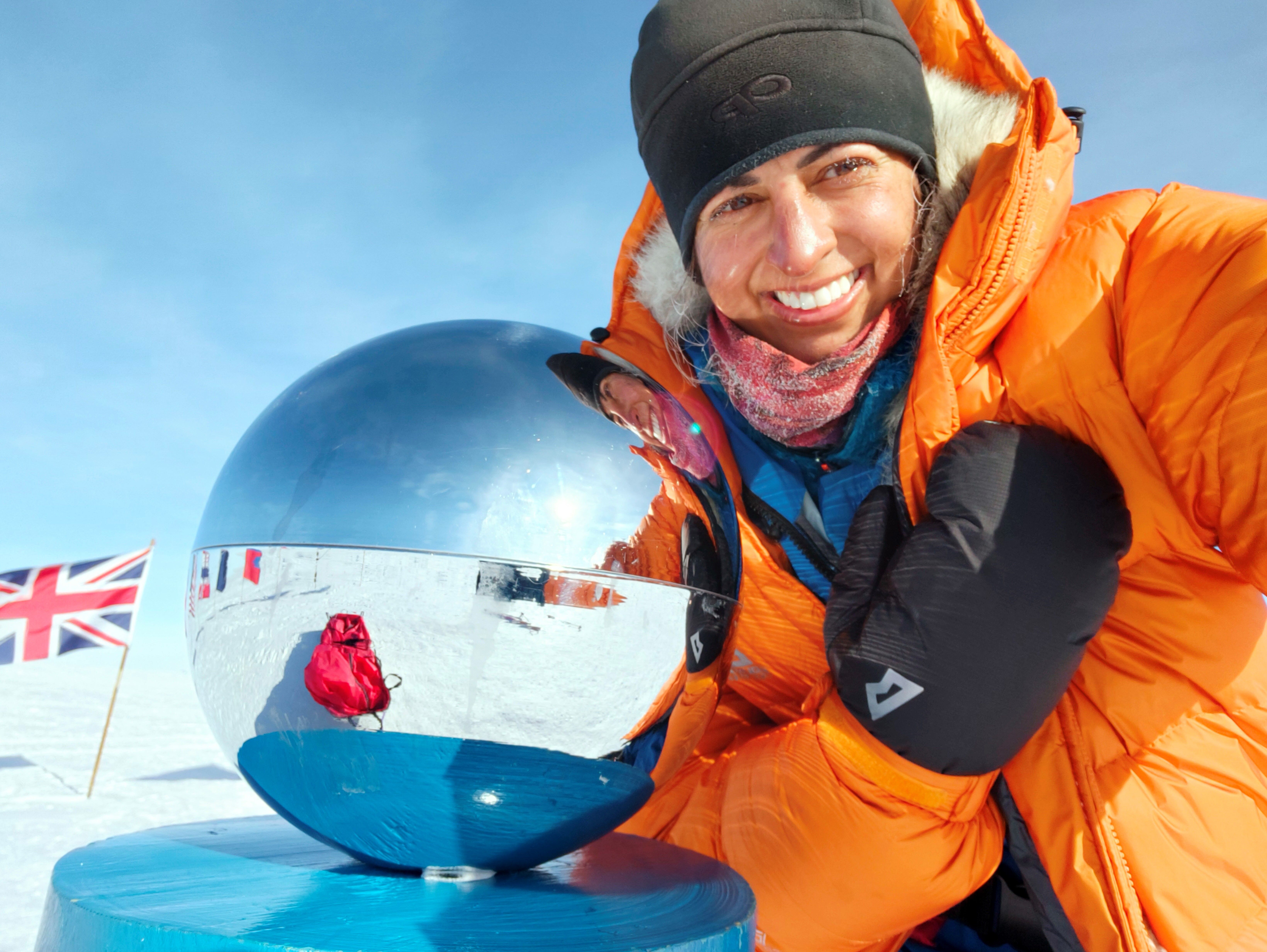
CAPTAIN PREET CHANDI
Captain Preet Chandi
Captain Preet Chandi joined the Royal Army Medical Corps in 2008 as a Combat Medical Technician, she commissioned into the Army Reserves in 2012 and joined the Regular Army in 2016. She is currently serving as a physiotherapist and has completed large scale exercises/deployments in Nepal, Kenya and South Sudan. She completed her Sports and Exercises Medicine MSc in Oct 2021.
In 2022, Preet became the ninth woman in history to ski solo to the South Pole and the first woman of colour to complete a solo expedition on the continent. In 2023, Preet set out on her next adventure, during which, she broke two Guinness world records for the longest solo unsupported one-way ski expedition by a woman and overall. As part of the endeavour, she covered 922 miles in 70 days.
In 2022, she completed more than four months of school talks in 2022 all over the UK, reaching more than 18,000 students. That same year, she was appointed a Member of the Order of the British Empire (MBE) as part of the Queen’s Birthday Honours.
She won the ‘Inspirational’ and ‘Woman of the Year’ awards at the inaugural Women in Defence event in October 2022 and received an honorary masters at Derby University in 2022.
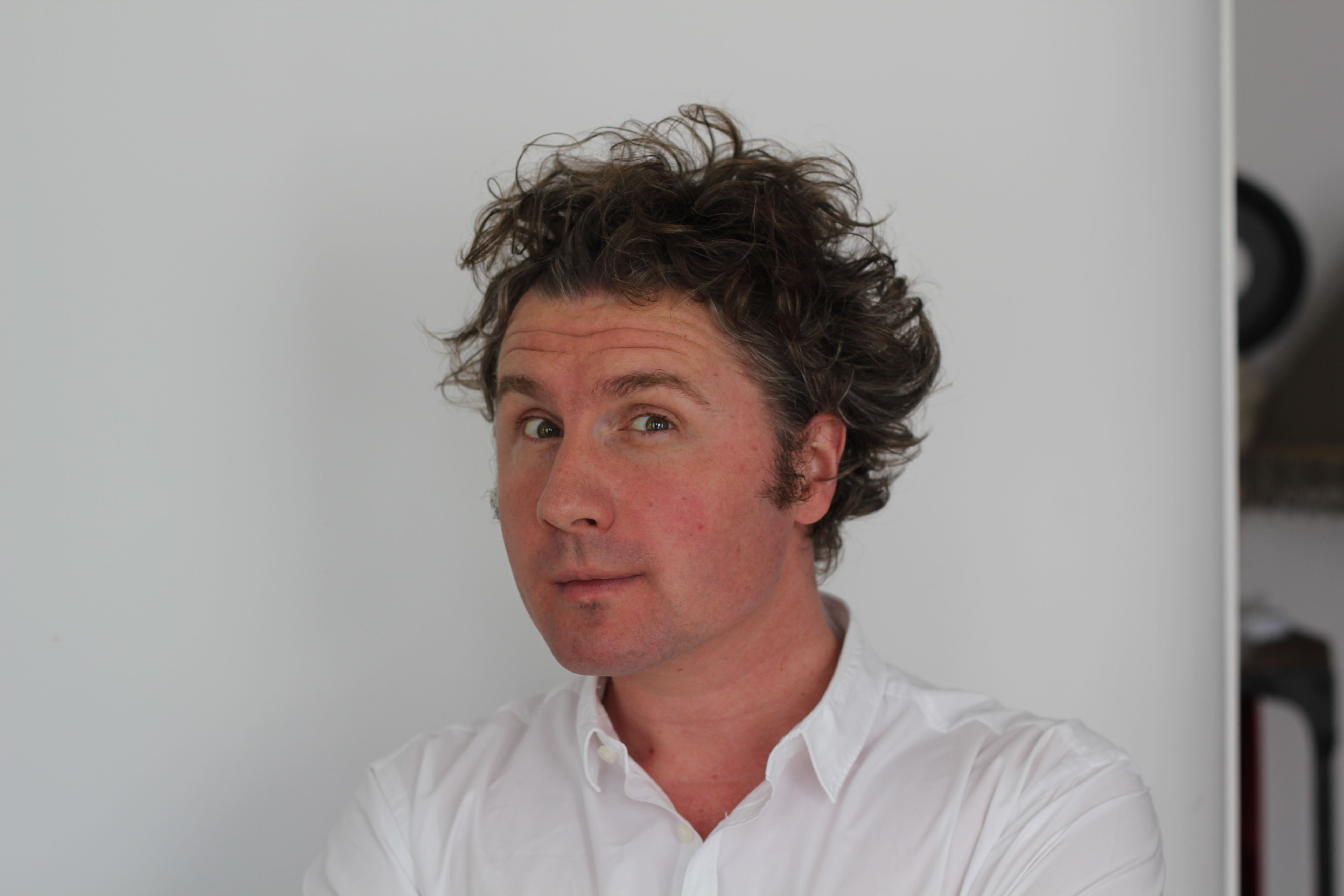
PROFESSOR BEN GOLDACRE
Ben Goldacre is an award-winning writer, broadcaster, doctor, academic and campaigner who specialises in unpicking scientific claims made by scaremongering journalists, government reports, pharmaceutical corporations, PR companies and quacks. He trained in medicine at Oxford and UCL, in psychiatry at the Maudsley, and in epidemiology at LSHTM. He is currently Senior Clinical Research Fellow at the University of Oxford, Director of the Evidence-Based Medicine DataLab and Chair of the HealthTech Advisory Board. His books have sold over 600,000 copies worldwide and have been published in 31 languages. His academic and policy work is in epidemiology and evidence-based medicine, where he works on better uses of routinely collected electronic health data, variation in care, access to clinical trial data, efficient trial design, and retracted papers. He has written policy papers for the UK government, founded the AllTrials campaign, and in the 2018 Queen’s Honours received an MBE “For Services to Evidence in Policy”.
GALA DINNER KEYNOTE - PROFESSOR BEN GOLDACRE
We are delighted to announce that Professor Ben Goldacre, Professor of Evidence-Based Medicine, University of Oxford, and author of ‘Bad Science’, ‘Bad Pharma’ and ‘I Think You’ll Find It’s A Bit More Complicated Than That’ will be joining us to speak at the ICSPP Gala Dinner.
THE CONFERENCE PROGRAMME
The programme, over three full days, will comprise invited military VIP and scientific keynote speakers, thematic sessions, oral and poster presentations, and roundtable discussions. Delegates will have free time to experience the DSEI exhibition, including talks and demonstrations, on the afternoon of Wednesday 13 September.
ICSPP delegates are invited to submit abstracts and / or propose thematic sessions at the links below. The full programme will be published online following peer review of submissions by May/June 2023.
The ICSPP programme will cover:
- Optimisation and enhancement of physical, cognitive, social, psychological and behavioural performance
- Metabolic, cardiovascular, neuromuscular, and female physiology
- Health and wellbeing
- Injury
- Trial design
- Data analytics
- Environmental factors
- Human machine teaming
- Futures science and technology
Please look out for further announcements on the ICSPP webpage, and on the ICSPP Twitter page.
CONGRESS THEMES
- Environmental Stressors, Exposures, and Injuries
- Data Analytics and Predictive Modelling
- Physical Training
- Musculoskeletal Injury and Physiology
- Nutrition and Metabolism
- Futures Science and Technology
- Human Augmentation
- Trial Design, Methods, Conduct, and Reporting
- Female Physiology
- Physical Performance
- Cognitive Performance
- Psychological Resilience and Performance
- Health and Wellbeing
- Mental Health
- Epidemiology
- Human Machine Teaming
- Neurobiology
WHERE WILL THE ICSPP BE LOCATED?
The 6th ICSPP will be located at the ExCel London Exhibition Centre alongside the bi-annual international defence & security hybrid event DSEI 2023. ICSPP delegates will be given access to the DSEI 2023 exhibition, talks and demonstrations, and we expect a fruitful collaboration between these world class events, all taking place under one roof.
VENUE
ICSPP 2023 will be held from 12 - 14 September in conjunction with DSEI 2023, which is taking place from 12 - 15 September 2023.
DSEI connects governments, national armed forces, industry thought leaders and the defence & security supply chain on a global scale. ICSPP delegates will have the opportunity to engage in the latest capabilities across the exhibition’s Aerospace, Land, Naval, Security & Joint Zones.
Please visit our Accommodation Page for places to stay.
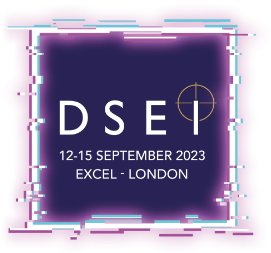
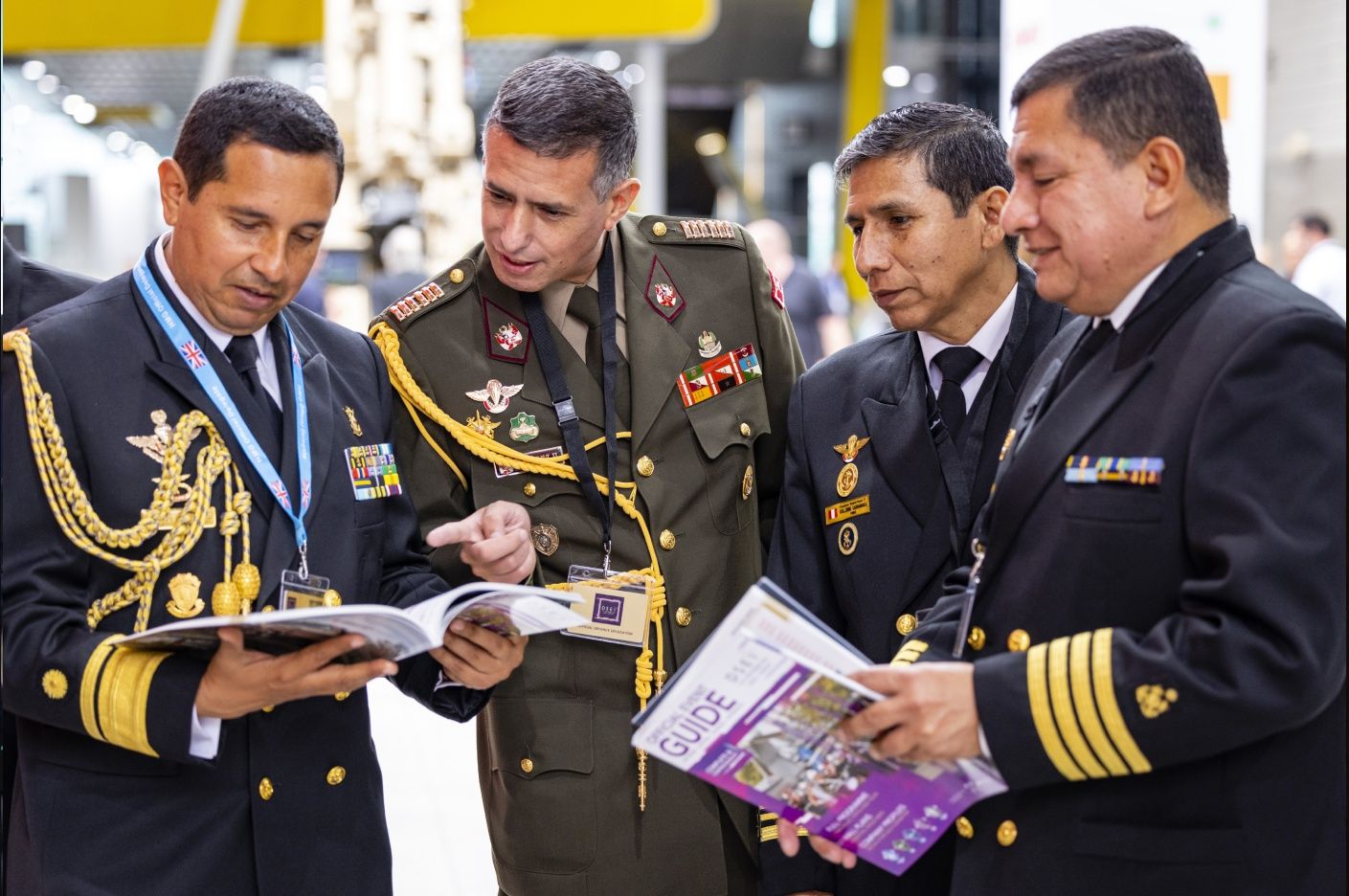
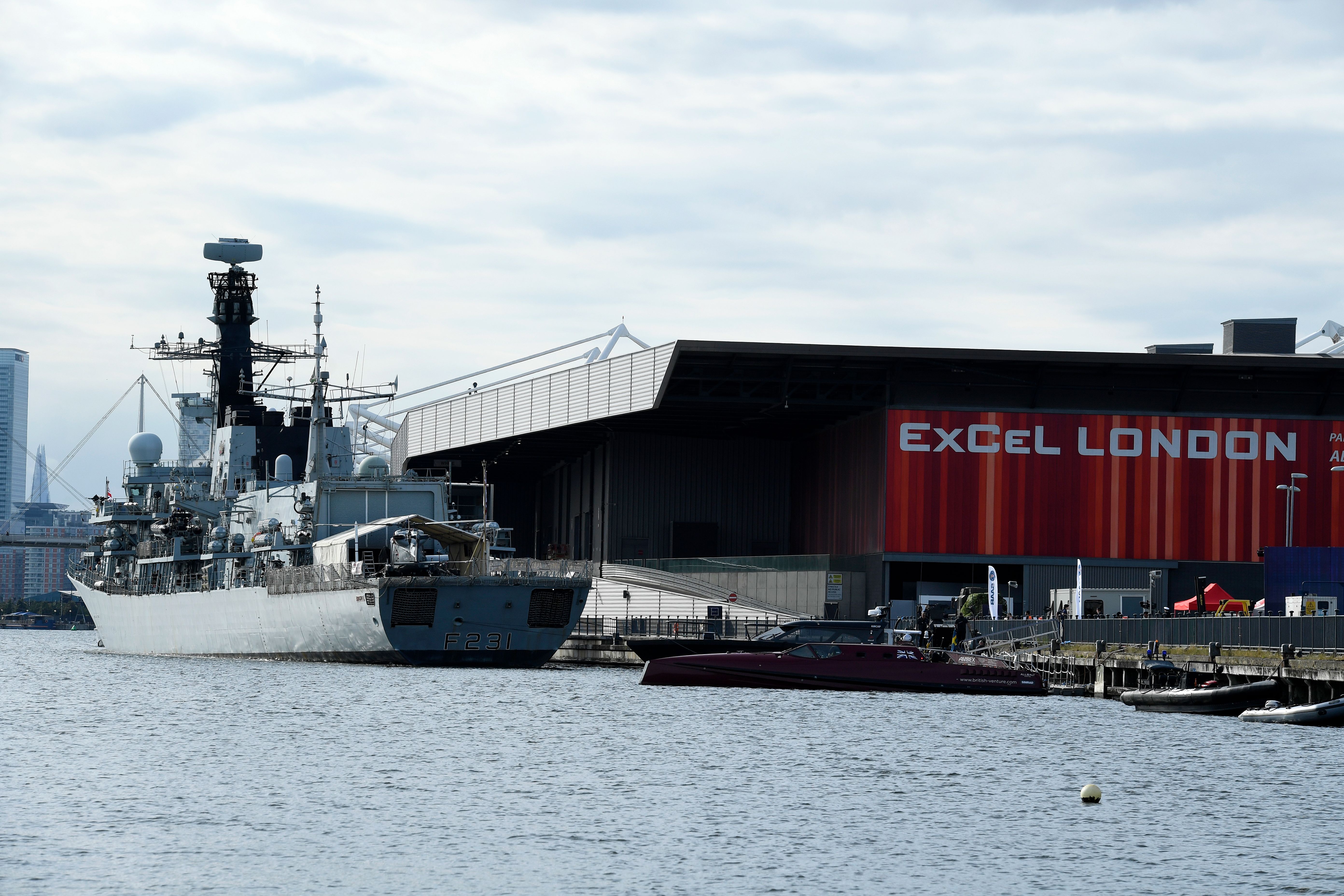

KEY DATES
| Abstract submission opens: | January 2023 | |
| Abstract submission deadline: | Sunday 12th March 2023, Midnight GMT | |
| Issue of acceptance email to lead author: | 30 April 2023* | |
| Early bird registration deadline: | ||
| Registration deadline: | 12 Noon BST, 25th August 2023 | |
| Conference dates: | 12 – 14 September 2023 |
* Please note abstracts will only be accepted onto the programme if the presenting author has registered and paid by 30 June 2023.
REGISTRATION FEES
Early bird registration fee: £625* Max 250 places. SOLD OUT
Regular registration fee: £725*
*Excl. VAT. Delegates can claim a VAT refund on the presentation of a valid VAT exemption certificate. Please email the Customer Solutions team using the ‘VAT Refund’ link below, requesting a VAT refund and attaching your organisation’s VAT exemption certificate.
Registration is non-refundable and non-transferable due to individual verification undertaken as part of the registration process for ICSPP.
ORGANISING COMMITTEE, UNITED KINGDOM:
| Julie Greeves OBE Ph.D. Co-Chair of 6th ICSPP 2023 Principal Physiologist Army Health & Performance Research UK Army |
Anna Casey Ph.D.
|
|
| Thomas O’Leary Ph.D. Chair of ICSPP 2023 Scientific Committee Higher Scientific Officer Army Health & Performance Research UK Army |
Sophie Arana Ph.D.
|
|
| Rebecca Knight Chair of 6th ICSPP 2023 Social Committee Scientific Officer Army Health & Performance Research UK Army |
Charlotte Coombs
|
|
| Bethany Moxham |
Organising Committee email: ArmyPers-ICSPP2023@mod.gov.uk
INTERNATIONAL COMMITTEE:
Chairs: Julie Greeves, Anna Casey
| Professor Julie Greeves, Army Health and Performance Research, UK Army Headquarters | Dr Anna Casey, Defence Science & Technology Directorate, UK Army Headquarters | |
| Dr Sophie Arana, Army Health and Performance Research, UK Army Headquarters | Dr Tom O’Leary, Army Health and Performance Research, UK Army Headquarters | |
| Mrs Rebecca Knight, Army Health and Performance Research, UK Army Headquarters | Dr Karl Friedl, US Army Research Institute of Environmental Medicine | |
| Professor Bradley Nindl, University of Pittsburgh | Professor Heikki Kyröläinen, University of Jyväskylä | |
| Professor Tara Reilly, Canadian Armed Forces | Dr Graham Fordy, ADA New Zealand | |
| Dr Hilde Teien, Norwegian Defence Research Establishment | Dr Henriette Hasselstrøm, Forsvarets Sanitetskommando | |
| Dr Jason Lee, National University of Singapore | Dr Jace Drain, Australian Defence Force |
SCIENTIFIC COMMITTEE:
Chair: Tom O’Leary
The ICSPP Scientific Committee extend their grateful thanks to the following scientists who gave up a considerable amount of time to conduct peer review of scientific abstracts and/or thematic sessions. All scientific abstracts were subject to double-blind review by two assessors against standardised peer-reviewing criteria. All thematic session abstracts were reviewed by two assessors against standardised peer-reviewing criteria.
| Sophie Arana | Army Health and Performance Research, UK Army Headquarters | Nicky Armstrong | UK Defence Science and Technology Laboratory (Dstl) | |
| Meaghan Beckner | US Research Institute of Environmental Medicine (USARIEM) | Dan Billing | Defence Science and Technology Group (DSTG), Australia | |
| Sam Blacker | University of Chichester, UK | Alex Carswell | University of East Anglia, UK | |
| Anna Casey | Defence Science & Technology Directorate (DST), UK Army Headquarters | Will Conkright | US Army | |
| Charlotte Coombs | Army Health and Performance Research, UK Army Headquarters | Simon Delves | UK Institute of Naval Medicine | |
| Tim Doyle | Macquarie University, Australia | Jace Drain | Defence Science and Technology Group (DSTG), Australia | |
| Yoram Epstein | Tel Aviv University, Israel | Jo Fallowfield | UK Institute of Naval Medicine | |
| Graham Fordy | New Zealand Defence Force | Karl Friedl | US Research Institute of Environmental Medicine (USARIEM) | |
| Rob Gifford | UK Royal Air Force | Niamh Gill | University of Salford, UK | |
| Julie Greeves | Army Health and Performance Research, UK Army Headquarters | Herb Groeller | University of Wollongong, Australia | |
| Jess Gwin | US Research Institute of Environmental Medicine (USARIEM) | Francois Haman | University of Ottawa, Canada | |
| Henriette Hasselstrom | Danish Defence Medical Command | Katrina Hinde | UK Defence Science and Technology Laboratory (Dstl) | |
| Helen Kilding | New Zealand Defence Force | Rebecca Knight | Army Health and Performance Research, UK Army Headquarters | |
| Kristen Koltun | University of Pittsburgh, USA | Heikki Kyröläinen | National Defence University, Finland | |
| Jason Lee | National University of Singapore | Luana Main | Deakin University, Australia | |
| Lee Margolis | US Research Institute of Environmental Medicine (USARIEM) | Kane Middleton | La Trobe University, Australia | |
| Brad Nindl | University of Pittsburgh, USA | Francis O'Connor | Uniformed Services University, USA | |
| Tommi Ojanen | Finland Defence Research Agency | Tom O'Leary | Army Health and Performance Research, UK Army Headquarters | |
| Kai Pihlainen | Finnish Defence Forces | Alex Rawcliffe | UK Army Recruiting and Initial Training Command (ARITC) | |
| Tara Reilly | Canadian Armed Forces | Julie Renberg | Norwegian Defence Research Establishment | |
| Hannah Rice | Norwegian School of Sport Sciences | Andy Roberts | UK Army Recruiting and Initial Training Command (ARITC) | |
| Andy Siddall | UK Defence Science and Technology Laboratory (Dstl) | Hilde Teinen | Norwegian Defence Research Establishment (FFI) | |
| Damien Van Tiggelen | Ghent University, Belgium | Jani Vaara | National Defence University, Finland | |
| Ella Walker | UK Defence Science and Technology Laboratory (Dstl) | Graham White | UK Defence Science and Technology Laboratory (Dstl) | |
| Jodie Wills | Macquarie University, Australia |
FREQUENTLY ASKED QUESTIONS
What disciplines does the ICSPP cover?
The Congress covers a broad range of disciplines, including:
- Physical training programs and adaptions
- Occupational and physical performance
- Testing and assessment
- Injury prevention
- Public health and health promotion
- Nutritional considerations
- Human factors
- Ergonomics
- Equipment design
- Biomechanics
- Load carriage
- Gender integration issues
- Thermoregulation and environmental issues
- Deployment considerations
- Wearable technology
- Psychological and cognitive factors
If I register for DSEI do I need to register for ICSPP too?
Yes, it’s a separate registration. Registering for ICSPP gives you access to DSEI on the Wednesday afternoon. Registering for DSEI does not give you access to ICSPP. To access DSEI for the four event days, ensure you complete a separate DSEI registration.
Please Note: ICSPP Registration is Now Closed
